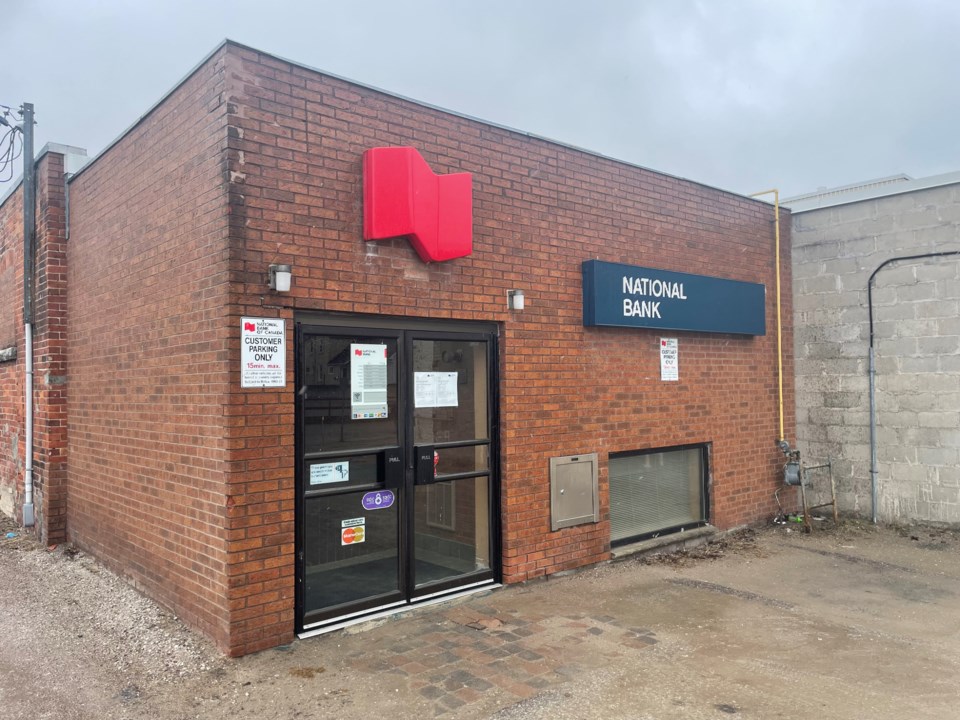National Bank customers will soon be without a local branch to service their in-person banking needs.
On Aug. 12, the bank will close its Orillia branch at 44 Mississaga St. E. Although an ABM machine will remain in Orillia for its clients, the bank’s in-person services will be transferred to its Barrie branch.
“The bank decided to reposition its service offering in the Orillia area following a significant drop in counter transactions at the branch,” said Stephanie Rousseau, National Bank’s senior advisor of public relations, in a statement.
“Year over year, counter transactions have decreased by around 20%, whereas transactions using our online and mobile banking solutions are increasing significantly and represent nearly 80% of client transactions,” she said. “This trend reflects our clientele’s changing habits.”
On top of the remaining National Bank ABM, Rousseau said there will be five "exchange network ABMs" in town that clients will be able use for no additional fee. She also noted certain mobile employees will remain available in Orillia.
“A mobile team of Mortgage Development Managers and Commercial Account Managers will be available to serve clients via remote appointments, and appointments in the client’s home or place of business,” she said.
Rousseau said several employees will be reassigned to other branches following the closure.
Michael Fredson, chair of the Downtown Orillia Management Board, said losing in-person services like banks can have a negative impact on the downtown.
“Downtowns thrive off of a good mix of businesses,” he said. “We need services, we need restaurants, and we need retail to make a really good vibrant downtown, so losing the service piece to it can affect it.”
The closure reflects “banks making profitability, business decisions, instead of service decisions,” Fredson said, adding that a lack of a physical branch can create barriers for some people.
“Most downtowns are kind of the central hub for buses and everything, so people that don't have access to cars … they've now lost access to banks,” he said. “Sometimes you have people that don't have cars and then also can’t afford a computer and internet.”
